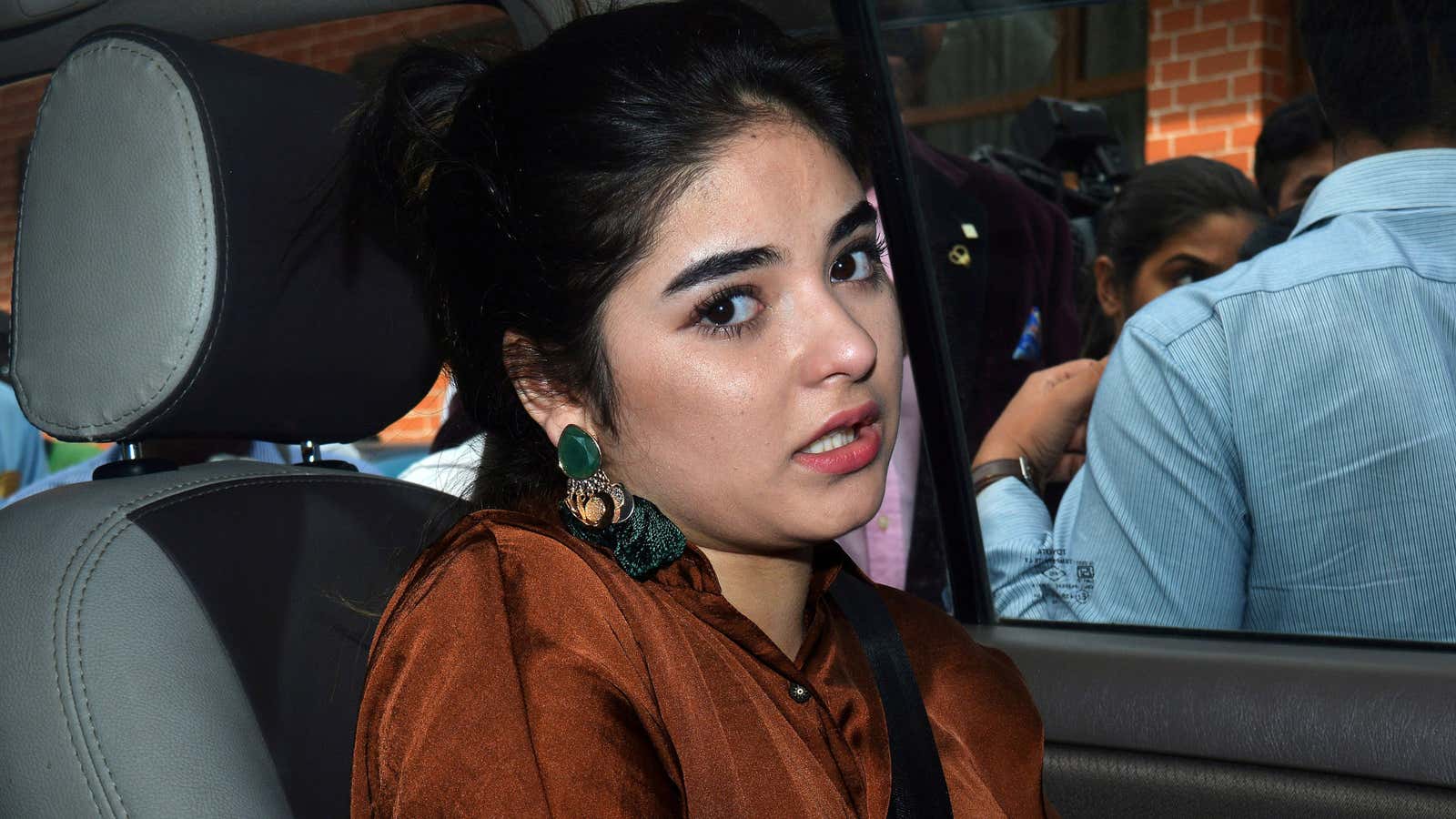India is battling a crippling drought. Communal tensions have recently flared up in various places across the country. Corporate investments have hit a 15-year-low and unemployment is at a four-decade high. And all this is just the tip of the proverbial iceberg.
Yet, what senior media personnel, religious figures, politicians, historians, and sundry others have been mostly obsessing over in the past few days is an 18-year-old’s move to quit Bollywood.
Actor Zaira Wasim, the star of the inspiring Hindi movies Dangal (2016) and Secret Superstar (2017), had announced her decision in a June 30 Facebook post.
Wasim may only be two films old, but she has already won plaudits, including a coveted national award. Her third release, the Priyanka Chopra-production, The Sky is Pink, is being wrapped up. (She has opted out of promotions.)
Up in arms
A slew of people from various walks of life—Jammu & Kashmir police officers, an entrepreneur, and political leaders—have chided Wasim for bringing religion into the mix. Senior jourrnalist Barkha Dutt rebuked her for the “indoctrination of religious conservatism.”
Others showed solidarity:
Swami Chakrapani, president of the Hindu nationalist Akhil Bhartiya Hindu Mahasabha, even encouraged Hindu actresses to follow Wasim’s example and choose faith over profession.
Amidst this uproar, a section of Twitter rightly pointed out how futile all this back-and-forth may be.
Perhaps, the only people justified in debating Wasim are those from the film world.
Brunt of Bollywood’s backlash
Wasim’s post mentioned that being a part of the showbiz threatened her relationship with her religion, implying that the profession was immoral.
In a now-deleted tweet, actor Raveena Tandon said, “Doesn’t matter if two-film-olds are ungrateful to the industry that has given them all. Just wish they’d exit gracefully and keep their regressive views to themselves.”
Filmmaker Onir said he wished her statement left out the “sermon on (a) good way of life…The opposite is a huge struggle for many who are prevented to make the choice, citing the idea as anti-religion.”
Siddharth, of Rang De Basanti fame, shared the same sentiment, saying, “I believe our art and our profession is our life. We fight to keep religion out of it. It doesn’t belong here. If your religion made you do this, maybe you didn’t belong here after all.”
Wasim’s decision, however, may be more nuanced. The actor felt prey to bullying and trolling. Tanushree Dutta, a former actor who set the ball rolling on India’s #MeToo movement last year, lauded her decision to move away from the toxicity of the film world.
Yet, one can’t help but wonder if the decision is truly Wasim’s own or if she succumbed to pressure. The latter would be a heartbreaking irony considering her last release, Secret Superstar, which revolved around a Muslim girl pursuing music on the internet anonymously and eventually breaking free of a restrictive life.
In reality, is Wasim getting caged again?
